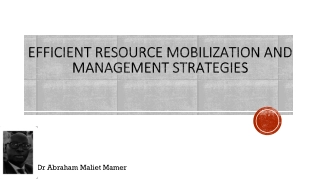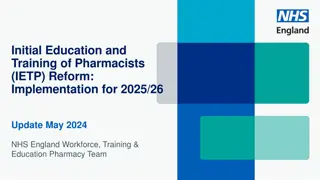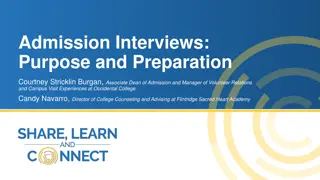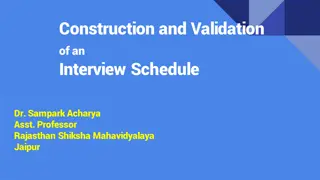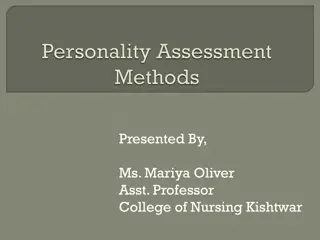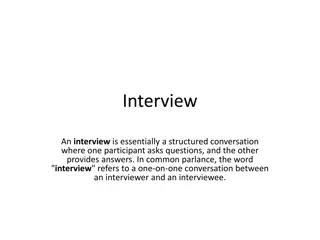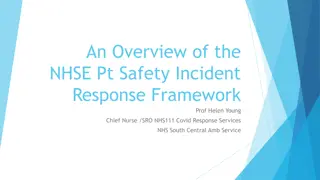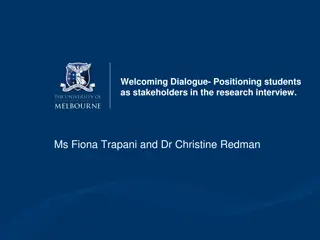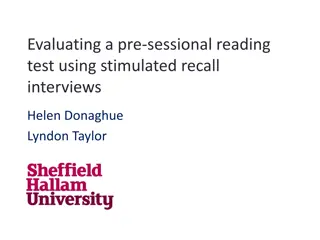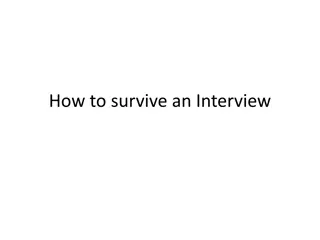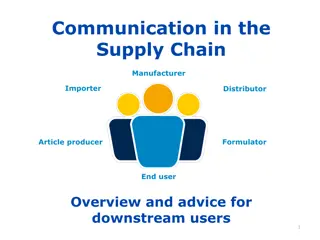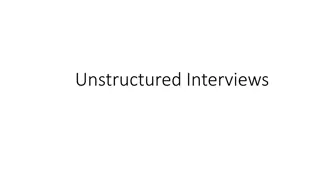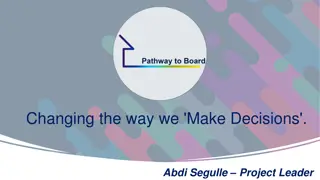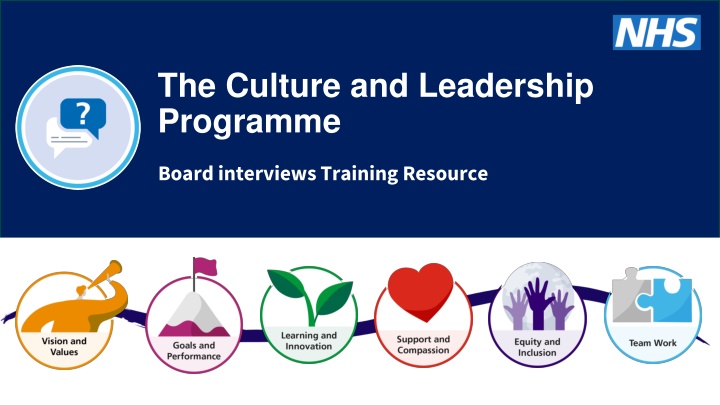
Culture and Leadership Programmes for Effective Organizational Development
Explore the Culture and Leadership Programme Board's diagnostic tools and board interviews designed to improve organizational culture and leadership. Learn about collective and compassionate leadership approaches and the process of conducting board interviews to assess organizational strengths and areas for development.
Uploaded on | 0 Views
Download Presentation

Please find below an Image/Link to download the presentation.
The content on the website is provided AS IS for your information and personal use only. It may not be sold, licensed, or shared on other websites without obtaining consent from the author. If you encounter any issues during the download, it is possible that the publisher has removed the file from their server.
You are allowed to download the files provided on this website for personal or commercial use, subject to the condition that they are used lawfully. All files are the property of their respective owners.
The content on the website is provided AS IS for your information and personal use only. It may not be sold, licensed, or shared on other websites without obtaining consent from the author.
E N D
Presentation Transcript
The Culture and Leadership Programme Board interviews Training Resource
The culture and leadership programme NOTES Our trust is running a programme on culture and leadership. This programme aims to develop and implement strategies for collective leadership which result in cultures that deliver high quality, continuously improving, compassionate care. This work should help improve the health and wellbeing of staff and lead to better health outcomes for patients. We are currently in the [Scoping/Discovery phase] of this programme diagnosing our culture. We are using resources developed by NHS England, The King s Fund and the Centre for Creative Leadership. 2 |
Definitions Culture: An organisation s culture can be defined as the values lived by its employees every day these may not be the same as the stated values. The lived values can be seen by the way we do things around here . NOTES Collective leadership: A type of culture where staff at all levels are empowered as individuals and in teams to act to improve care within and across trusts leadership of all, by all and for all . This is in contrast to command and control cultures which are not conducive to achieving high quality care. Compassionate leadership: A culture where all feel supported, listened to and where action is taken which leads to improvement. Inclusive leadership: A culture which recognises the unique needs of individuals, so that all feel valued and have the opportunity to thrive. 3 |
Purpose of board interviews These interviews are part of a wider set of diagnostic tools to help us understand the culture of our organisation the strengths and areas for development. NOTES This work is part of a [XXX insert timescale here] project to ensure effective cultures within our trust. Board views are very valuable the board has significant influence over an organisation and is in a strong position to develop and improve the culture, leadership and performance. We intend to report back to board members on the culture diagnostics. This will also include information from other diagnostics including staff surveys and focus groups. 5 |
Process of board interviews The interview consists of 14 questions and will take approximately one hour. NOTES The questions will cover board member views on how the board assures five elements of high quality care cultures in our trust. These are: vision and values, goals and performance, learning and innovation, support and compassion, and teamwork. Board members should give their personal perspective on the performance and behaviours of the board as a whole. They will have the opportunity to sign off any written transcript of the interview to ensure accuracy. 6 |
Confidentiality Frank and open responses are essential to the success of the interview NOTES Individual responses will remain confidential and will not be shared with other board members Access to individual responses will be restricted to [xxx and xxx] Transcripts will be coded so that they do not identify individual interviewees and any comments that are critical of individuals will be redacted Responses of board members will only be used in aggregate or anonymised format If we wish to use a quote or stories from this interview in the report, we will seek your approval 7 |
Probing questions NOTES You mentioned , tell me more about that You mentioned , what was that like for you? You talked about ..., describe that experience in as much detail as possible What else happened? What were your feelings about that? It sounds like you re saying 10 |
Beware of interview bias! Departure from the interview instructions NOTES Poor maintenance of rapport with the respondent Altering factual questions Rephrasing attitude questions Careless prompting Biased probes Asking questions out of sequence Biased recording of verbatim answers. 11 | Reference: Oppenheim (1992)

